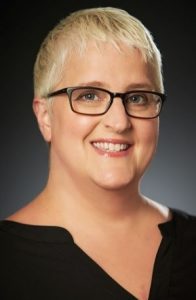
LOS ANGELES and ALBANY, N.Y. (September 22, 2020) – TutorMe, a leading provider of online tutoring, and Excelsior College, an accredited, not-for-profit online college focused on helping adults complete their degrees and advance their careers, announced today an agreement to provide Excelsior students with TutorMe’s online, 24×7 tutoring services, free of charge.
TutorMe has an extensive network of verified online tutors that can help students on a variety of subjects and provide support with writing assignments. This service is extremely helpful for distance learning students who may need extra guidance from someone with expertise on a particular subject and are looking for immediate assistance.
“Excelsior College is excited to offer this new service to students to help with student success and academic advancement. Its 24/7 access and user-friendly dashboard help our students get the support they need when they need it,” stated Nan Rodriguez, director of the Writing Center at Excelsior College. “The TutorMe platform also allows students to receive quality feedback on papers and other written work in 12 hours or less from a network of over 12,000 certified tutors who are ready to help with any question, no matter how big or small.”
“Excelsior College is joining TutorMe’s more than 100 education partners who have seen the value and impact of providing online, 24×7 tutoring services,” shared Myles Hunter, CEO, and co-founder of TutorMe. “With more than 12,000 tutors available in 300 subjects, Excelsior students can access the support they need to succeed in their courses.”
Media Contact TutorMe:
Alanna Vitucci
alanna.vitucci@zovio.com
858 668 2586 x11636
Media Contact Excelsior:
Alicia Jacobs
518-410-4624
About Excelsior College
Excelsior College (excelsior.edu) is an accredited, not-for-profit online college focused on helping adults complete their degrees and advance their careers. The college contributes to the development of a diverse, educated, and career-ready society by valuing lifelong learning with an emphasis on serving individuals historically underrepresented in higher education. Founded in 1971, Excelsior meets students where they are — academically and geographically — removing obstacles to the educational goals of adults pursuing continuing education and degree completion. Our pillars include innovation, flexibility, academic excellence, and integrity. Learn more at excelsior.edu.
About TutorMe
TutorMe is the online tutor of the future—as a leading provider of online tutoring, the platform connects students with highly qualified tutors in, on average, less than 30 seconds. TutorMe provides instruction via video chat, screen sharing, and virtual whiteboards archived for future reference. They work with learners and parents from K–12 to higher education, either directly or through partnerships with academic institutions or via employer-provided benefits. TutorMe is part of the Zovio network.
About Zovio
Zovio (Nasdaq: ZVO) is an education technology services company that partners with higher education institutions and employers to deliver innovative, personalized solutions to help learners and leaders achieve their aspirations. The Zovio network, which includes Fullstack Academy, TutorMe, and Learn@Forbes, leverages its core strengths and applies its technology and capabilities to priority market needs. Using advanced data and analytics, Zovio identifies the most meaningful ways to enhance the learner experience and deliver strong outcomes for higher education institutions, employers, and learners. Zovio’s purpose is to help everyone be in a class of their own. For more information, visit www.zovio.com.
# # #




 A champion of adult learning, prior to joining Excelsior College, Heather Chakiris was chief student experience officer and director of student and alumni services at UCLA Extension, University of California. In this role she provided executive-level leadership for enrollment management strategy and the creation of the student-service experience for one of the nation’s largest continuing and online education institutions. Before joining UCLA, Chakiris worked at The Pennsylvania State University for almost 25 years, both in its World Campus and Distance Education divisions. She held several leadership roles, including associate director and director of advising and learner success, assistant director and associate director of student services, and chief strategist and brand manager.
A champion of adult learning, prior to joining Excelsior College, Heather Chakiris was chief student experience officer and director of student and alumni services at UCLA Extension, University of California. In this role she provided executive-level leadership for enrollment management strategy and the creation of the student-service experience for one of the nation’s largest continuing and online education institutions. Before joining UCLA, Chakiris worked at The Pennsylvania State University for almost 25 years, both in its World Campus and Distance Education divisions. She held several leadership roles, including associate director and director of advising and learner success, assistant director and associate director of student services, and chief strategist and brand manager.